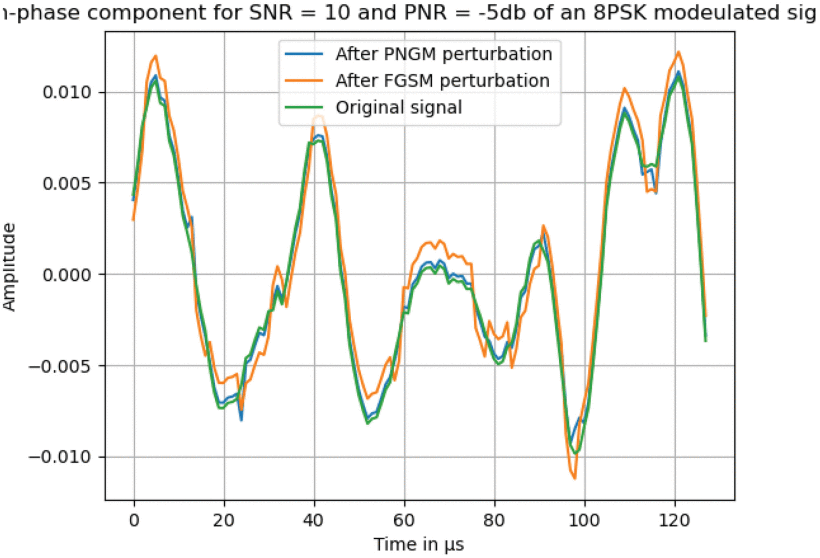Novembro 2024
M. Chiheb Ben Nasr, P. Freitas de Araujo-Filho, G. Kaddoum and A. Mourad, “Projected Natural Gradient Method: Unveiling Low-Power Perturbation Vulnerabilities in Deep-Learning-Based Automatic Modulation Classification,” in IEEE Internet of Things Journal, vol. 11, no. 22, pp. 37032-37044, 15 Nov.15, 2024, doi: 10.1109/JIOT.2024.3439440.

Abstract
Rapid advancements in deep learning (DL) and the availability of the large data sets have made the adoption of DL highly appealing across various fields. Wireless communication systems, including future 6G systems are anticipated to incorporate intelligent components like automatic modulation classification (AMC) for the cognitive radio and dynamic spectrum access. However, DL-based AMC models are susceptible to the adversarial attacks, which consist of crafted perturbations that aim to alternate the decision of a victim model. This study focuses on investigating and uncovering modern modulation classifiers’ vulnerability to the adversarial threats. Though attacks of this nature inherently jeopardize DL-based classifiers, contemporary attack methods typically exhibit diminished impact at the lower perturbation levels. Therefore, we introduce a novel attack approach that exploits the Riemannian manifold properties of the intricate neural networks, yielding adversarial samples with heightened efficacy at the lower perturbation powers. We thoroughly evaluate how effective various defense techniques are and demonstrate our proposed attack method’s ability to thwart them. The findings of this study shed light on the limitations and vulnerabilities of the DL-based AMC models in the face of the adversarial attacks. By addressing these challenges, we can enhance the robustness and security of these models, and pave the way for their reliable deployment in practical wireless communication systems, including the future 6G networks.
Authors
Mohamed Chiheb Ben Nasr, Electrical Engineering Department, École de Technologie Supérieure, University of Quebec, Montreal, QC, Canada
Paulo Freitas de Araujo-Filho, Centro de Informática, Universidade Federal de Pernambuco, Recife, Brazil
Georges Kaddoum, Electrical Engineering Department, École de Technologie Supérieure, University of Quebec, Montreal, QC, Canada / Artificial Intelligence and Cyber Systems Research Center, Lebanese American University, Beirut, Lebanon
Azzam Mourad, Department of CS, KU 6G Research Center, Khalifa University, Abu Dhabi, UAE / Department of CSM, Artificial Intelligence and Cyber Systems Research Center, Lebanese American University, Beirut, Lebanon

Comentários desativados